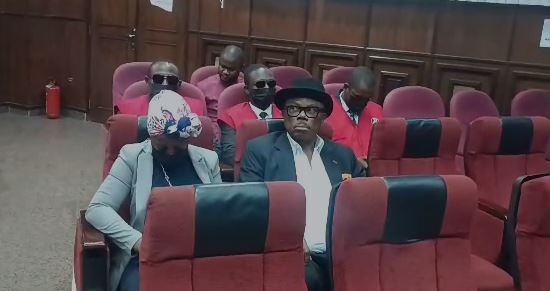The Federal High Court in Abuja, on Thursday, dismissed the application of a former Governor of Anambra State, Willie Obiano seeking to quash corruption charges against him.
The Economic and Financial Crimes Commission (EFCC) had leveled nine charges against Obiano, alleging misappropriation of N4 billion.
Obiano, who was arraigned on January 24, is standing trial on nine charges bordering on alleged N4billion theft.
But in a preliminary objection filed by the defendant through his lawyer Onyechi Ikpeazu (SAN), Obiano said the EFCC lacks the power to prosecute him.
He also urged the court to quash the instant charges against him, describing them as an abuse of court process
Ruling on the application on Thursday, Justice Inyang Ekwo said the application lacked merit and deserved to be dismissed.
Ekwo said security votes are paid from the Federation Account, adding that he could not stop the case of the prosecution.
“As long as the EFCC Act has not been declared unconstitutional, this court cannot stop the implementation of the Act.
“The powers of the EFCC ought to be a question of law and have a bearing on the 1999 constitution.
“State security votes come from the Federation Account, making the development a constitutional issue.

“This court has no powers to pre-empt the case of the prosecution,” he held.
On the issue of proof of evidence, Ekwo said the Federal High Court is a court of summary jurisdiction in criminal proceedings.
After the ruling, Ikpeazu moved an application to vary the bail granted to the defendant.
“This is based on the health conditions and medical appointments of the defendant. His treatment usually lasts 60 days. He will comply with the conditions set by my lord,” Ikpeazu added.
Ruling, Justice Ekwo said: “Prayers 2,3 and 4 are hereby granted. Defendant to return his passport upon his return.”
The judge adjourned the matter to June 24, 25, 26, and 27 for trial.
Obiano’s defence team had challenged the EFCC’s authority to prosecute him, arguing for a dismissal of the case. However, the court ruled in favor of the EFCC, paving the way for a full trial.